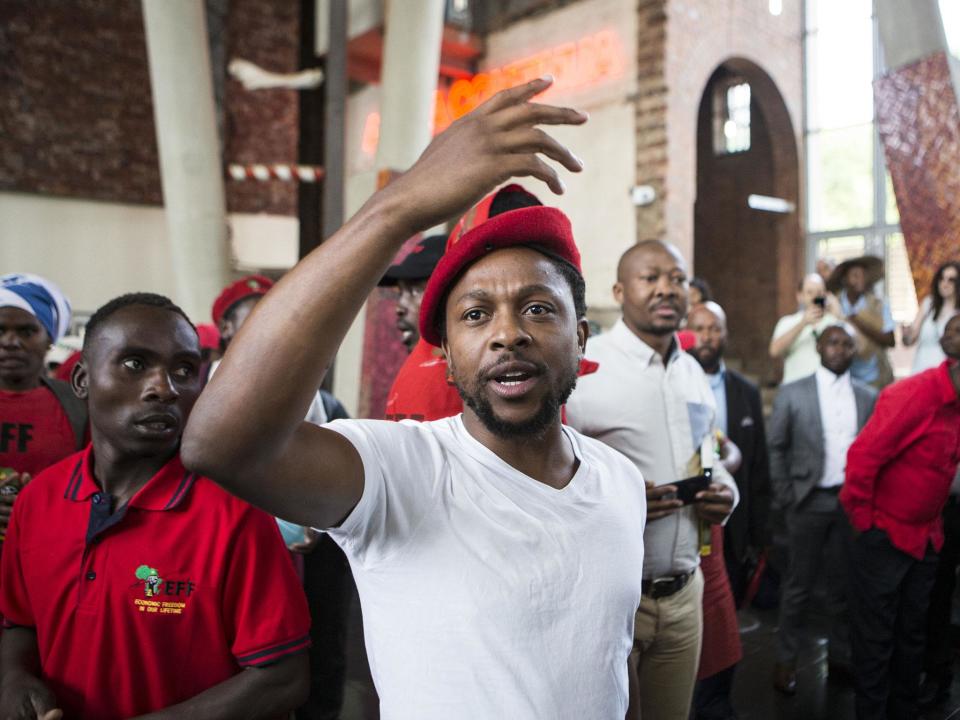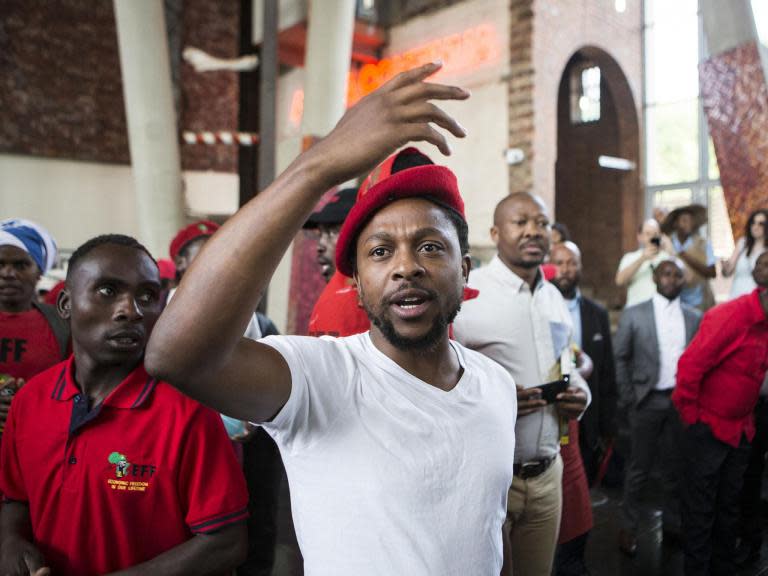South Africa: Taking farms from whites is justified because 'it's not really their land', says EFF spokesman
The national spokesman of a key South African opposition party has said redistributing land from white farmers without compensation is justified because “it is not really their land”.
Mbuyiseni Ndlozi told The Independent white farmers descended from Dutch and English colonial invaders had “have taken it [the land] through a violent crime against humanity”.
Mr Ndlozi is one of the most senior officials in the Economic Freedom Fighters (EFF) party, which put forward a successful motion last month calling on the government to consider amending South Africa’s constitution, to make clear that it is within the authorities’ power to redistribute property on racial grounds.
There have been concerns among South Africa’s white minority that the motion will encourage attacks on farmers, and the EFF’s leader Julius Malema has previously been convicted of hate speech for singing anti-white songs like “Shoot the Boer [Farmer]”.
Many South Africans nonetheless agree that some land distribution is needed as the country continues to recover from the horrors of apartheid and colonial rule. White people officially occupy 23.6 per cent of farmland in the country – a figure which rises to 73 per cent when land owned through private enterprises is taken into account – compared to 1.2 per cent owned by black South Africans.
“In this process, white people ought to accept the crime of apartheid and colonisation and how these crimes impacted on black people,” Mr Ndlozi said. Whites could “show remorse by ceding land they inherited through anti-black racist dispossession”, he suggested, adding: “Justice leads to reconciliation.”
Mr Ndlozi is a rising but divisive figure in South African politics, who at just 32 has garnered a strong following on social media.
A party founded on revolutionary ideals, the EFF itself holds just 25 seats in parliament, trailing behind the African National Congress (ANC) on 249 and the Democratic Alliance (DA) on 89. Yet as third-largest party it punches above its weight by entering into coalitions with the DA and other opposition groupings to obstruct the ruling ANC’s legislation.
It is widely understood that the EFF’s staunch opposition to President Jacob Zuma accelerated his resignation in February.
The ANC is now very aware of the importance of keeping the EFF on side, moving towards more radical policies like land reform that promise to deliver a fairer economic landscape for South Africa’s black population – a key EFF message.
“We felt a great and overwhelming sense of historic responsibility to finally reconstitute South African society on a truly non-racial land ownership basis,” Mr Ndlozi told The Independent.
Mr Ndlozi said he thought South Africa would be a better place without “whites”, going on to explain: “Yes, any community in the world would be a better place without any one referring to themselves as ‘white’.”
The EFF is doing little to shake its anti-white image. Just this week the party’s deputy president, Floyd Shivambu, was filmed putting his hand round the throat of a white Afrikaans journalist for Netwerk 24, Adrian de Kock, outside parliament.
And earlier this month Mr Malema suggested the EFF would topple a mayor in the coastal town of Port Elizabeth due to his race.
“They will be touched – don’t worry,” Mr Malema told a rally. “We are starting with this whiteness – we are cutting the throat of whiteness.”
Asked how he could defend such statements, party spokesman Mr Ndlozi said the rhetoric was meant figuratively. “By definition ‘whiteness’ means white hatred of blacks,” he said.
“You only define yourself as white to distinguish yourself from blacks; whiteness is a reference in as far as it seeks to point out the absolute other, which is black. We are going to take some of their land to share it with other blacks.”

 Yahoo News
Yahoo News 

